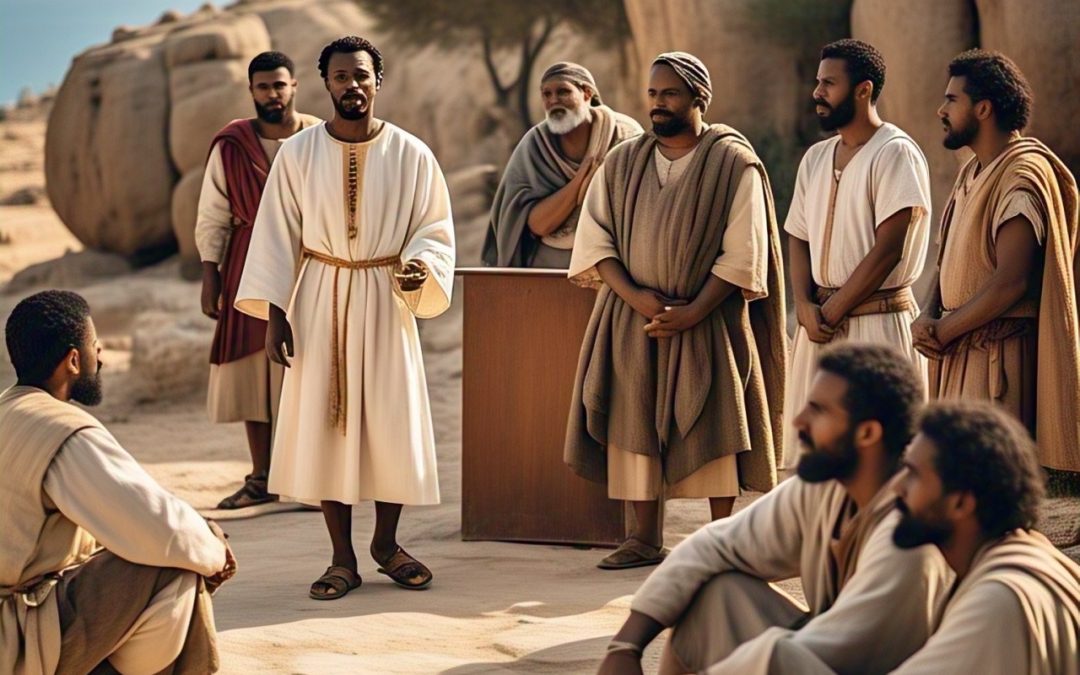Displacement has reached unprecedented scales. Millions find themselves forcibly uprooted—refugees crossing borders to escape persecution, internally displaced persons seeking safety within their own nations, asylum seekers awaiting legal protection, exiles banished for political or religious convictions, and deportees expelled from places they once called home.
The scale and complexity of today’s displacement differs dramatically from biblical times. Modern warfare displaces entire populations overnight. Climate change renders regions uninhabitable. Economic systems collapse, forcing migration for survival. Technology documents displacement in real-time while borders become increasingly militarized. Yet despite these differences, the questions remain strikingly similar: Where is God in the midst of forced migration? What does faithfulness look like for the displaced? How should communities respond to the stranger?
Scripture offers a framework for understanding modern displacement. The God who accompanied Israel through wilderness wanderings remains present with today’s refugees navigating treacherous journeys. The divine command to “love the stranger, for you were strangers in Egypt” (Deuteronomy 10:19) speaks directly to contemporary communities facing immigration debates. Jesus’ experience as a refugee challenges His followers to recognize His presence in those seeking asylum today.
The trauma of modern displacement—the loss of home, community, cultural identity, and often loved ones—finds resonance in biblical laments. The psalmist’s cry, “By the rivers of Babylon, there we sat down and wept when we remembered Zion” (Psalm 137:1), articulates the grief many refugees experience. This biblical tradition of lament validates the anger, sorrow, and disorientation of displacement without rushing to premature resolution.
Yet displacement, while devastating, can also become a site of revelation. Many displaced communities report deepened faith through their ordeal. Like Jacob wrestling at Peniel, they emerge with both wounds and blessing. Their testimonies challenge comfortable assumptions and reveal God’s presence in unexpected places—detention centers, refugee camps, and border crossings.
For faith communities, the global displacement crisis presents not just humanitarian challenges but spiritual opportunities. It invites us to recover ancient traditions of hospitality as sacred practice. It challenges nationalist theologies that equate divine blessing with territorial boundaries. It calls us to reexamine how economic systems we benefit from contribute to forced migration.
In the faces of today’s displaced millions, we encounter both a mirror reflecting our common vulnerability and a window into God’s particular concern for the uprooted. Their journeys remind us that all humanity shares a fundamental displacement. Strangers and sojourners on earth, seeking the city whose builder and maker is God.
Prayer
God of the refugee and the exile, You who walk alongside those forced to flee, we bring before You the millions of displaced people in our world today.
For refugees crossing borders in search of safety, for internally displaced persons seeking shelter within their homelands, for asylum seekers waiting in uncertainty, for exiles longing for the countries they were forced to leave, for deportees rebuilding lives in unfamiliar places: Be their shelter when all other shelter is gone.
We acknowledge the trauma of displacement. The homes abandoned, the possessions left behind, the communities scattered, the loved ones lost, the identities questioned, the futures uncertain. Where there is grief, grant the space to lament; where there is anger, provide paths toward healing; where there is despair, kindle sparks of hope.
Transform our communities into places of welcome. When we are tempted by fear, remind us of Your commands to love the stranger. When we benefit from systems that cause displacement, grant us courage to seek justice. When we encounter the displaced, help us recognize Your image and Your presence.
May detention centers become sites of dignity, may refugee camps foster community rather than dependency, may border crossings be places of compassion rather than cruelty, may the journeys of the displaced reveal Your accompanying presence.
Until that day when no one is forced from home, when all can live without fear of persecution or violence, we pray in the name of Jesus, who had nowhere to lay His head, and who promises a place for all in His Father’s house.
Amen.


Recent Comments